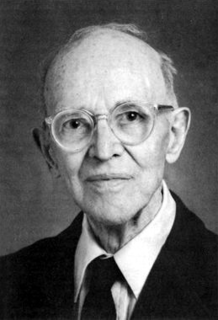A Quote by Blake Farenthold
The fourth amendment specifically was designed to prohibit general warrants. How could collecting every piece of phone data be perceived as anything but a general warrant?
Related Quotes
I'd say that [Louis] Brandeis practiced a kind of a "living originalism," to use the title of Jack Balkin's great book. He said you start with the paradigm case, which in the case of the Fourth Amendment was these general warrants or writs of assistance, but you define it at a level of abstraction that you can take it into our age and make it our own.
Let's say tomorrow that there was a president, that we elected a president that eliminated the bulk collection of data. Let's just say it happened. What do you think would happen? People are like 'the sky would fall. We would be overrun with jihadists.' Maybe we could rely on the Constitution. Maybe we could get warrants. ... If you make the warrant specific, there's no limit to what you can get through a warrant.
In 1979, the Supreme Court ruled 5-3 in Smith v. Maryland that a few days' worth of phone records for a single individual were not protected by the Fourth Amendment. The NSA today, though, collects hundreds of millions of phone records from hundreds of millions of Americans without an individualized warrant.
Disturbingly, the First Amendment, along with the Fourth Amendment - protecting against unreasonable searches and seizures, and requiring warrants - have been the major casualties of the shift in government policy in the last two decades. Unfortunately, I think that the biggest consequences of this tragedy won't be clear until it is far, far too late.
The prohibition is general. No clause in the Constitution could by any rule of construction be conceived to give to Congress a power to disarm the people. Such a flagitious attempt could only be made under some general pretense by a state legislature. But if in any blind pursuit of inordinate power, either should attempt it, this amendment may be appealed to as a restraint on both.
In general, of course, a stranger who tries to get you into an automobile is anything but noble, and in general a person who quotes great American novelists is anything but treacherous, and in general a man who says you needn't worry about money, or a man who smokes cigarettes, is somewhere in between.
Speculative Philosophy is the endeavour to frame a coherent, logical, necessary system of general ideas in terms of which every element of our experience can be interpreted. By this notion of 'interpretation' I mean that everything of which we are conscious, as enjoyed, perceived, willed, or thought, shall have the character of a particular instance of the general scheme.
When they took the Fourth Amendment, I was silent because I don't deal drugs. When they took the Sixth Amendment, I kept quiet because I know I'm innocent. When they took the Second Amendment, I said nothing because I don't own a gun. Now they've come for the First Amendment, and I can't say anything at all.
Nearly every business collects metrics on inventory, sales, and workplace process. Health care has been slow to measure these kinds of outcomes. Increasingly, general medicine, via either managed care or large practice settings, is improving by collecting data through electronic records and refining practice based on what works.































